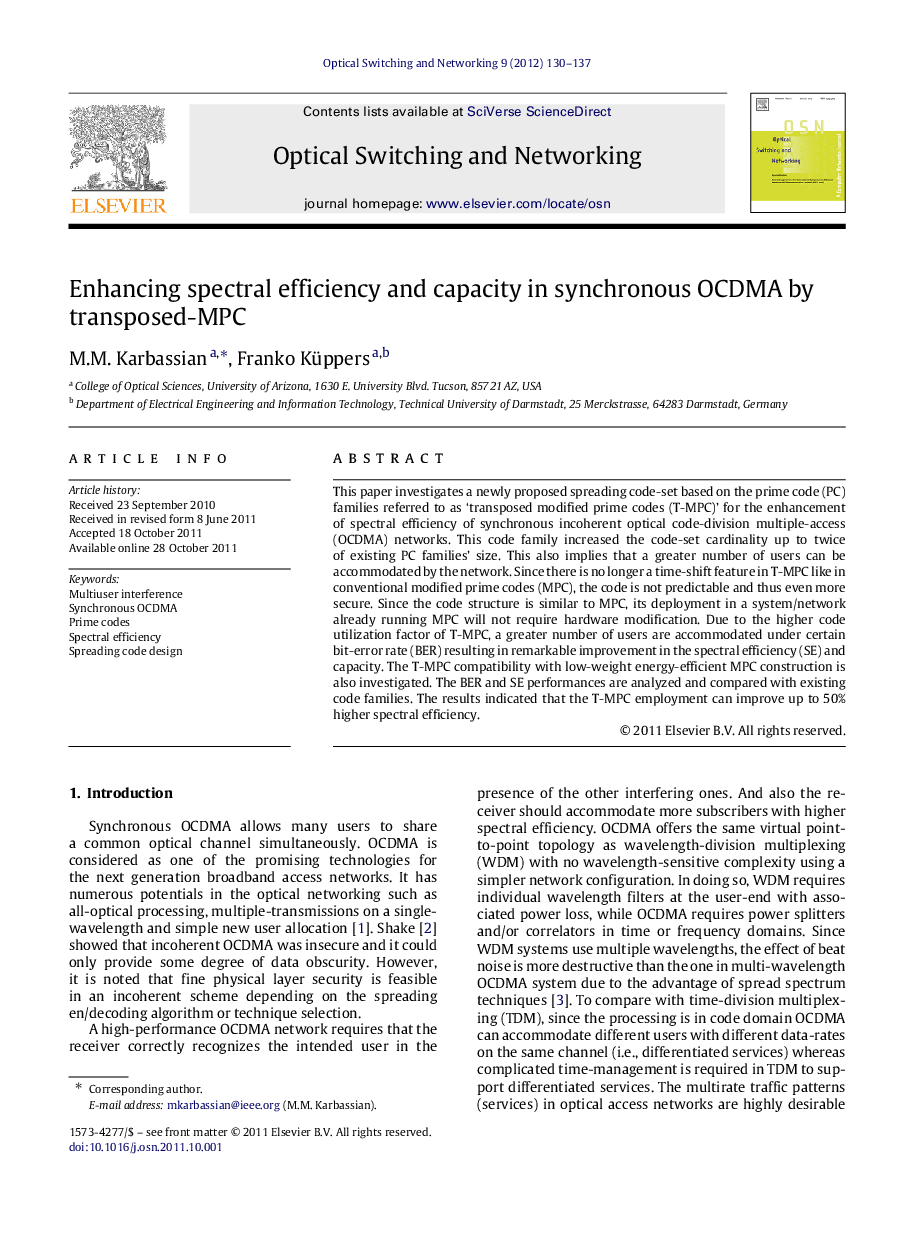| Article ID | Journal | Published Year | Pages | File Type |
|---|---|---|---|---|
| 464570 | Optical Switching and Networking | 2012 | 8 Pages |
This paper investigates a newly proposed spreading code-set based on the prime code (PC) families referred to as ‘transposed modified prime codes (T-MPC)’ for the enhancement of spectral efficiency of synchronous incoherent optical code-division multiple-access (OCDMA) networks. This code family increased the code-set cardinality up to twice of existing PC families’ size. This also implies that a greater number of users can be accommodated by the network. Since there is no longer a time-shift feature in T-MPC like in conventional modified prime codes (MPC), the code is not predictable and thus even more secure. Since the code structure is similar to MPC, its deployment in a system/network already running MPC will not require hardware modification. Due to the higher code utilization factor of T-MPC, a greater number of users are accommodated under certain bit-error rate (BER) resulting in remarkable improvement in the spectral efficiency (SE) and capacity. The T-MPC compatibility with low-weight energy-efficient MPC construction is also investigated. The BER and SE performances are analyzed and compared with existing code families. The results indicated that the T-MPC employment can improve up to 50% higher spectral efficiency.
